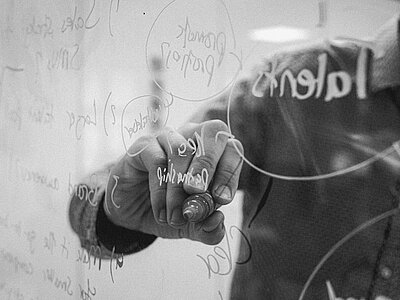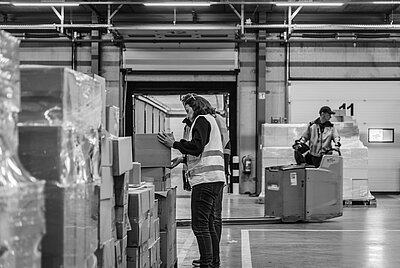Values-based business
Values are now essential for success, particularly within a retail environment. There are plenty of retailers that are carving out a space for themselves as leaders in driving forwards diversity and inclusion.
Swedish retail giant H&M is one of these pioneers, committed to creating safe workspaces that are reflective of society with shopping spaces and brand experiences that are inclusive and diverse.
And in Europe, values have become fundamental to attracting talent into roles and getting people to stay. Recent research from LinkedIn shows that two-thirds of professionals in Europe want to work for companies that share their values.
“The work we’ve done with some large high-street retailers, such as value-driven listening groups, has reinforced how much employees want to be supported by their employers,” adds Sophie Wood, Co-Founder & Co-Chief Belonging Officer at Belonging Base.
“It also enables customers to make choices about where they spend their money, based on those values.”
Our own work around building a values-based business model has been to make everyone, irrespective of who they are or what role they do, feel equally engaged with and supported by Worldpack and our parent company Bunzl.
Bunzl has been working with Green Park to broaden its approach to diversity and inclusion and we continue to make strides into encouraging diverse leadership and encouraging different pools of talent into our workforce through inclusivity.
Empathy is everything
Empathy is something that can create wholescale change for the better. Recent research from Catalyst, shows that employee engagement and innovation is boosted by around 40% if employees have an empathetic manager. Empathy forms the base for leaders and managers to treat each and every employee as an individual with unique experiences, outlooks and challenges.
“Most management training all focuses on function and HR – policies, procedures, and planning. But if managers can manage like coaches, with leaders becoming more empathetic and honing their listening skills to really hear what their staff members are saying, productivity goes through the roof,” emphasises Danielle.
As McKinsey & Company points out in its report: New leadership for a new era of thriving organizations, it starts with the embodiment of those values and qualities. It states: “Today’s leaders must move beyond their identity as professionals and show up as humans, with the courage to be, and to be seen as, their whole, best, authentic selves.”
But this empathy should also extend towards your customers and their own unique experience of your brand, with emphasis on your in-store experience.
Creating an inclusive store experience, from accessible and safe changing spaces to diversity on the shop floor, re-thinking store layouts and changes in product design, requires empathy and consideration.
Measuring success
It’s important for retailers today to be measuring success tangibly. And while this may seem a little daunting, there are some creative ways that you can bring clarity and meaning to your measurement of diversity and inclusion agendas.
“Reverse mentoring is a great diversity and inclusion initiative that you can measure. Asking younger employees to teach older employees about their experiences and outlooks, and surveying staff annually, can give retailers clarity and create change,” says Sophie.
“It’s important that diversity and inclusion becomes part of your business strategy. Another way to ensure this is to link your reward/bonus schemes to diversity and inclusion performance markers.
“We’ve also seen some retailers we work with create shadow board members to feedback on diversity and inclusion issues, so that the board receives anonymous and unbiased feedback on how well it is really doing.”
And there’s robust evidence that shows it’s good for businesses. McKinsey & Company reports a strong correlation between diversity in company leadership and financial outperformance. And data from Accenture also suggests that consumers will switch to retailers that are committed to diversity and inclusion.
Diversity and inclusion might seem like a treadmill that never turns off, but by starting with strong values and an ear for empathy, you’ll be well placed for success.
If you want to make changes to your in-store diversity and inclusion agenda, speak with our team on +31 (0) 88 494 20 80 or email us at online@worldpack.eu


